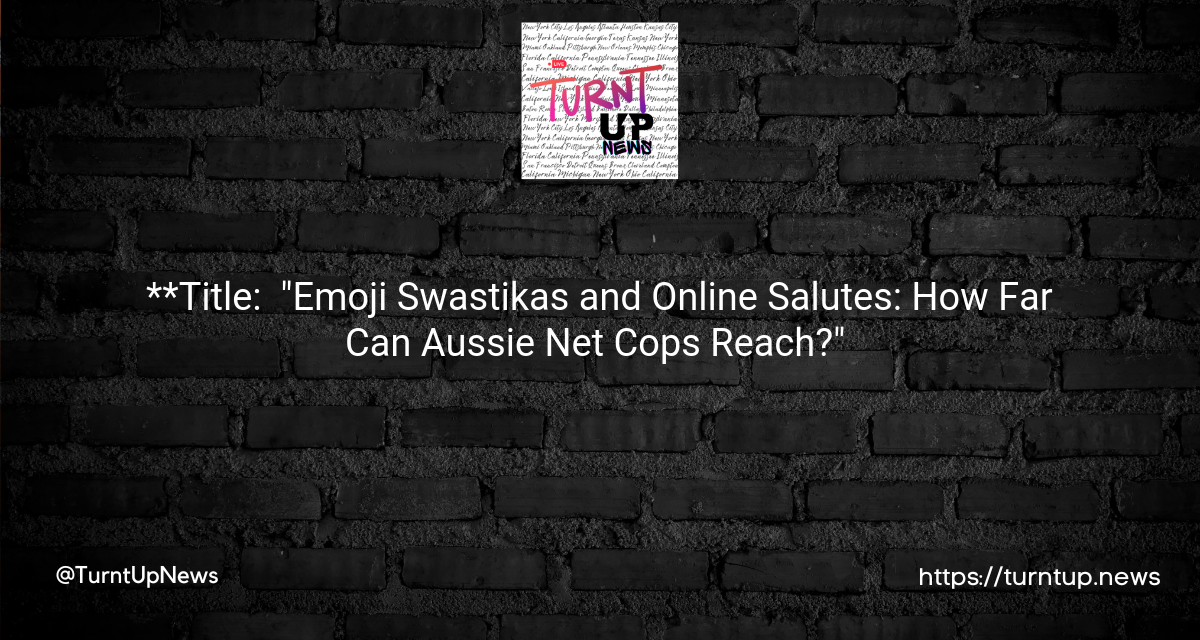**🤔💻🚫💣 “Emoji Swastikas and Online Salutes: How Far Can Aussie Net Cops Reach?” 🦘🌐👀
**TL;DR; 🗞️🎯:
Aussie lawmakers are scratching their heads over how to police the internet, all in the name of combating far-right extremism. Their latest bright idea? Making the public display of Nazi symbols illegal online. The hitch in the plan? The tech whizzes over at the Australian Federal Police and the Department of Home Affairs warn it’s not that simple. 🧑💻🏛️🔗🤷♀️
**News Story 📰💡:
If it were as simple as swiping left, Australian authorities would be over the moon. Instead, they’re grappling with how to nip far-right extremism in the bud, specifically the online public display of Nazi symbols. Proposed new legislation could make such displays a criminal offence, but experts are warning of potential bumps in the road.
Australian Federal Police (AFP) and the Department of Home Affairs have been playing Jiminy Cricket to the parliamentary inquiry investigating the feasibility of the bill. Their warning is clear: prosecuting online activities could prove a monumental task. 🧑⚖️💻🚫🔯
It seems a simple equation: Nazi symbolism = hate messages. Such symbolism has been weaponised by far-right extremists, used both in real-life protests and as a tool for online radicalisation. Yet, taking action against this is far from simple. In the world of online spaces, every action has its own set of reactions, and legislating this realm is far from easy. 🌐👩💻💬😨
A person caught red-handed displaying Nazi symbols could face a fine of up to $27,500, not to mention a maximum of 12 months imprisonment under the proposed laws. But if the authorities can’t reach into the World Wide Web and smack the culprits’ wrists, how effective will these laws be? 🧑⚖️💰⛓️
The debate heated up after neo-Nazi protesters got a little too enthusiastic with their Nazi salutes at the steps of Parliament House earlier this year. Victoria was the first state to ban the Nazi swastika last year, and others including New South Wales, Queensland, Australian Capital Territory, Tasmania and Western Australia have followed suit. Now, the Victorian government is considering adding gestures to the banned list. But again, how does one police an online salute? 🚫🏛️💂♀️💭
AFP Assistant Commissioner with Counter Terrorism and Special Investigations, Krissy Barrett, has voiced her support for the bill, but she doesn’t shy away from admitting that enforcement will be a challenge. As the threat of terrorism becomes increasingly ‘diverse and complex’, authorities are wrestling with how to make the proposed laws apply effectively in online spaces. 👩✈️💬👥💣
So, the question remains: How far can Aussie net cops reach into the murky waters of the internet to root out and penalize the public display of Nazi symbols? And more importantly, how effective will this digital crackdown be in tackling far-right extremism? Only time will tell. ⏳🌐👮♀️🧭
Disclaimer: This article does not provide legal advice. It does not endorse or recommend any particular course of action regarding any legal matter. ⚠️🚫🧑⚖️
Now, let’s get your thoughts! Do you think legisl




